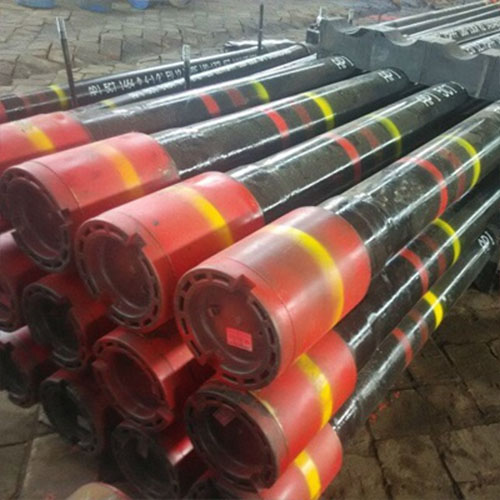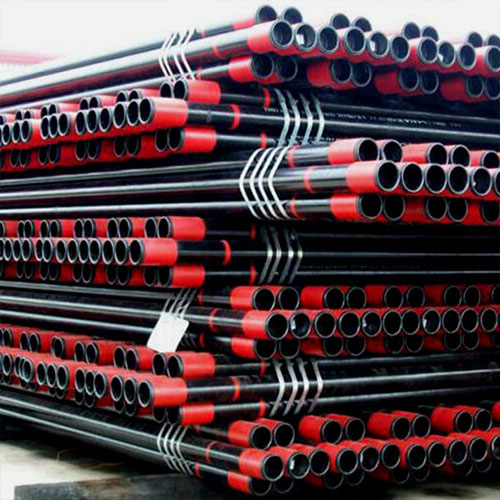Table of Contents
Benefits of Using PVC Water Bore Casing
Water bore casing is an essential component of water bore systems, providing structural support and protection for the well. PVC (polyvinyl chloride) water bore casing is a popular choice among homeowners and professionals due to its numerous benefits. In this article, we will explore the advantages of using PVC water bore casing.
One of the primary benefits of PVC water bore casing is its durability. PVC is a strong and rigid material that can withstand the harsh conditions of underground environments. It is resistant to corrosion, rust, and degradation, ensuring that the casing will last for many years without the need for frequent maintenance or replacement.
In addition to its durability, PVC water bore casing is also lightweight and easy to handle. This makes it easier to transport and install, saving time and labor costs during the construction of a water bore system. The lightweight nature of PVC casing also reduces the strain on equipment and personnel, making the installation process more efficient and less labor-intensive.

Another advantage of PVC water bore casing is its versatility. PVC casing is available in a variety of sizes and lengths, making it suitable for a wide range of water bore applications. Whether you are drilling a shallow residential well or a deep industrial borehole, PVC casing can be customized to meet your specific requirements.
Furthermore, PVC water bore casing is resistant to chemical and biological contaminants. This makes it an ideal choice for water bore systems that are used for Drinking Water supply or agricultural irrigation. PVC casing helps to maintain the purity and quality of the water by preventing contamination from external sources.
Moreover, PVC water bore casing is cost-effective compared to other materials such as steel or concrete. PVC is a more affordable option that does not compromise on quality or performance. By choosing PVC casing for your water bore system, you can save money on materials and installation costs while still ensuring a reliable and long-lasting solution.
Additionally, PVC water bore casing is easy to maintain and repair. In the rare event that the casing becomes damaged or compromised, it can be quickly and easily replaced without the need for extensive excavation or costly repairs. This minimizes downtime and ensures that your water bore system remains operational at all times.
In conclusion, PVC water bore casing offers numerous benefits that make it a popular choice for homeowners and professionals alike. Its durability, lightweight nature, versatility, resistance to contaminants, cost-effectiveness, and ease of maintenance and repair make it an ideal option for water bore systems of all sizes and applications. If you are considering installing a water bore system, be sure to choose PVC casing for a reliable and efficient solution.
Common Issues with Steel Water Bore Casing
Water bore casing is an essential component of a water bore system, providing structural support and protection for the well. Steel casing is a popular choice due to its durability and strength, but like any material, it can experience issues over time. In this article, we will discuss some common issues that can arise with steel water bore casing and how to address them.

One of the most common issues with steel water bore casing is corrosion. Corrosion occurs when the steel casing is exposed to water and oxygen, leading to the formation of rust. This can weaken the casing over time, potentially causing leaks or structural damage. To prevent corrosion, it is important to use high-quality steel casing that is properly coated or treated to resist rust. Regular inspections and maintenance can also help identify and address any corrosion issues before they become serious.
Another common issue with steel water bore casing is damage from external forces. This can include physical damage from rocks or debris in the ground, as well as damage from equipment used during installation or maintenance. To prevent damage, it is important to carefully plan the location and installation of the water bore casing, taking into account potential hazards in the surrounding Environment. Using proper equipment and techniques during installation and maintenance can also help minimize the risk of damage to the casing.
In some cases, steel water bore casing can also experience issues with integrity, such as leaks or cracks. This can be caused by a variety of factors, including corrosion, external damage, or improper installation. If left untreated, integrity issues can Lead to contamination of the water supply or loss of water pressure. Regular inspections and testing can help identify any integrity issues early on, allowing for prompt repairs or replacement of the casing as needed.
One final common issue with steel water bore casing is improper sizing or installation. If the casing is not the correct size or is not installed properly, it can lead to a variety of problems, including reduced water flow, leaks, or structural instability. It is important to work with a qualified professional to ensure that the casing is the right size and is installed correctly, taking into account factors such as the depth of the well, the type of soil, and the water table level.
In conclusion, steel water bore casing is a durable and reliable choice for water bore systems, but it can experience issues over time. By addressing common issues such as corrosion, damage, integrity issues, and improper sizing or installation, you can help ensure the long-term performance and reliability of your water bore system. Regular inspections, maintenance, and working with qualified professionals can help prevent and address these issues, keeping your water supply safe and secure for years to come.

